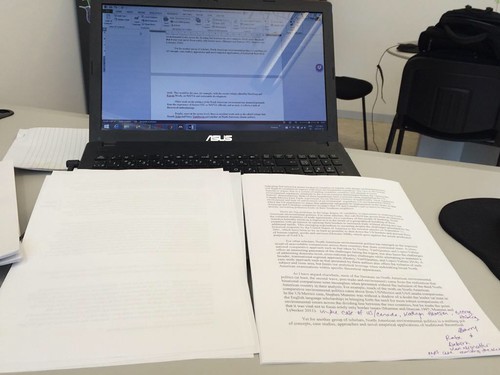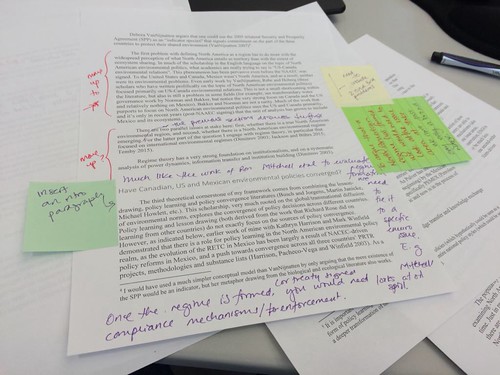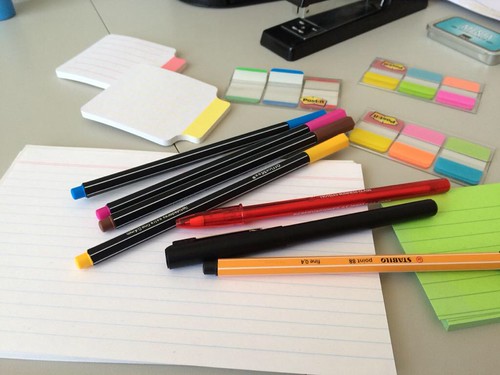Perhaps the weirdest thing about the way in which I conduct research and I write is that I find that the old-fashioned way works best. For me, doing everything online (on the screen) doesn’t work. I am quite well-versed in computer-aided qualitative analysis (I use N*Vivo, Atlas Ti and will start using Dedoose once I figure it out), yet I still code my data by hand (with colored pens, markers and highlighters). I work the same way when I write. I edit by hand. And I write first, and edit later.
To be very honest, my approach to academic writing (and particularly mine) is to always draft first and edit later. Whatever I write, for the two hours I do (or the 4 periods of 30 minutes a day) I write as it comes out, and then edit. For the book chapter I just finished, I actually wrote a very first draft (a skeleton) that then I started filling out by hand, with Post-It adhesive notes, colored pens, etc. (as you can see in the photo below). I do edit the really, really old fashioned way.
If I don’t have a first draft, it’s much harder for me to start filling up the blanks. And as I have mentioned before, I think in terms of filling up paragraphs rather than worrying about finishing a full chapter, manuscript, conference paper. I don’t think I’m alone in suggesting that you should write first and edit later (here is Rachael Cayley on drafting and editing). You can do the editing through the full document, or as Patrick Dunleavy suggests, doing reverse outlining and paragraph re-planning. Pat Thomson is quite right in saying that we shouldn’t obsess about producing perfect first drafts.
I have no shame in admitting that I do things the old-fashioned way. Of course I know how to use computer-aided-just-about-everything, but the feeling of shaping how a paper is looking through handwritten notes and Post-Its is just amazing. Of course it helps that I have a stationery addiction, because I use every single tool I can to achieve my research and teaching goals.




0 Responses
Stay in touch with the conversation, subscribe to the RSS feed for comments on this post.